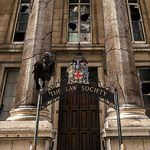To avoid tax you have to do a thing which cuts your tax bill. Fail to do that thing and your tax bill is higher. But do it and you’ve avoided tax compared with an alternative world – economists call it a counterfactual but you and I would call it an overdraft – in which your tax bill is higher.
If this all seems a bit, well, metaphysical, it shouldn’t.
When Ian Cameron died, David Cameron (pictured) received £300,000 in his will. That’s just below the maximum amount you could, at the time, pass on free of inheritance tax. Most or all of the rest went to David’s mother and, because she was Ian’s wife, it went tax free. She promptly gifted the Prime Minister a further £200,000 by way of what Downing Street is describing as an equalisation payment (a payment to ‘equalise’ the money that the children received from their father).
That’s the real world. If she survives the gift by seven years that will save £70,000 compared with an alternative world in which the money went straight from Ian to David.
The mere fact of making gifts whilst you’re alive can – if you’re wealthy at least, because only a very few people are rich enough to pay inheritance tax – avoid inheritance tax. But I wouldn’t describe it, without more, as meaningful tax avoidance. It’s a rule that the statutory draftsman has created and you’re using it as she intended.
But what takes this little two-step into the realm of meaningful tax avoidance is that it would have been known before Ian’s death what sum David needed to get in Ian’s will to ensure he received the same amount from his father as his siblings.
The natural thing to do – and so to me the appropriate ‘counterfactual’ to what actually happened – would have been for Ian to make the gift in his will. But instead Ian gave him a sum of such a size that there would be no inheritance tax to pay. And then David’s mother gave him a little bit more in such a way that, if she outlived the gift by seven years, there would have been no inheritance tax to pay.
Compare that counterfactual to what actually happened and there’s a £70,000 inheritance tax saving.
I think this is, in a meaningful sense, tax avoidance.
Jolyon Maugham QC is a barrister practising from Devereux Chambers and has advised the Labour Party on its reform to the non-dom rules. He blogs at Waiting for Godot – Musings on Tax and can be found tweeting here.
See more on the Panama Papers at ‘Comment: Shifting the Overton window – Panama Papers will change the consensus on tax (and boost corporate law firms)’











